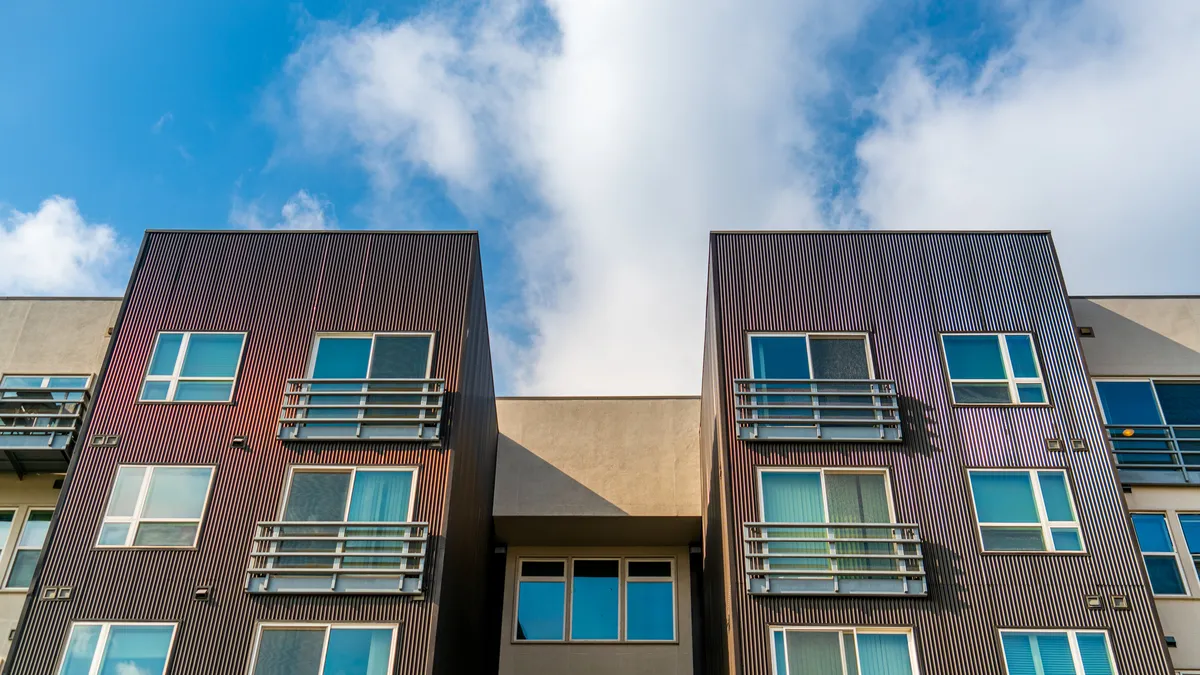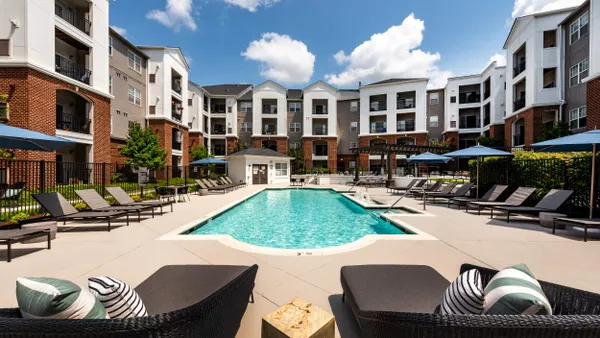Dive Brief:
- In a move that showed the vulnerabilities in older multifamily assets bought at the top of the market, Arbor Realty Trust foreclosed on four Houston apartment properties totaling 3,200 units after Dallas-based Applesway Investment Group defaulted on nearly $230 million in loans earlier this month.
- In a statement to Multifamily Dive, Arbor said that it took no loss on the loans and restructured the debt, despite reports saying otherwise. New York City–based investment firm Fundamental Partners, an existing investor, recapitalized the transaction.
- Applesway, led by founder Jay Gajavelli, purchased the Heights at Post Oak, Redford Apartments, Reserve at Westwood and Timber Ridge Apartments between August 2021 and April 2022.
Dive Insight:
As interest rates rise and rents decline, Applesway won’t be the only apartment investor facing problems. Already, Veritas Investments, The Chetrit Group and Blackstone have faced issues.
And recent Trepp data shows challenges only increasing. The servicing rate for multifamily loans financed with commercial mortgage-backed securities jumped 34 basis points to 3.04% in March. Twelve months ago, it sat at 1.66%. The delinquency rate for multifamily CMBS loans rose eight basis points to 1.91%, according to Trepp. Twelve months ago, it sat at 1.53%.
Arbor declined to comment and Fundamental didn’t reply to a request for comment. Applesway’s website and Linkedin page are no longer active.
There were specific problems with the Applesway portfolio, according to a Houston market observer. The loans on the four properties were originated at the top of the market before interest rate increases started to dent values.
As more competitors chased these types of older properties after 2020, cap rates fell, and prices increased. “People couldn't get their hands on enough class A properties,” said Venkat Avasarala, founder of Dallas-based Stryker Properties, which sold 3,100 units of mostly older properties in September 2021. “So then they went after class B, and then they went after class C. Then all of these properties were trading at five caps — A’s, B’s and C’s — as if there was no difference between them. That is where the business model broke.”
Once interest rates rose, debt service payments on floating-rate loans also increased for owners like Applesway. “Back in 2021, nobody was expecting rates to go up,” Avasarala said.
Class C problems
The foreclosed properties also allegedly had issues stemming from owner neglect, including roaches, rats and overflowing trash at the Timber Ridge Apartments, according to the Houston Chronicle. The situation got so bad that Houston Mayor Sylvester Turner visited the complex.
When apartments become uninhabitable, people move out. That leads to more problems, according to Avasarala. “Nobody in Texas can survive with a 60% occupancy,” Avasarala said. “You cannot pay your bills if you're only 60% occupied. Break-even occupancy for a typical Texas C class property is north of 80%.”
In Texas, where there is no state income tax, commercial property owners carry a larger share of the revenue burden, according to Avasarala. In addition, insurance costs have jumped as high as 50% in states like Texas and Florida, according to Yardi.
Finally, 1970s- and 1980s-era properties have inherent issues with systems like plumbing that can cost hundreds of thousands of dollars to repair. In Texas, the clay soil can be especially tough on older underground pipes, according to Avasarala.
“A C-class property has lower rents, higher delinquency, higher capital expenditures and higher insurance costs,” Avasarala said. “Now that it's trading at a five cap, it’s also taxed like a five cap. So you don't make enough money in C class to put up with all these things and still run a profitable business.”
To be profitable, these apartments need to be bought at a better price. “These C class properties should be traded at a higher cap rate, like they used to — at eight cap, nine cap, ten cap or something like that,” Avasarala said.
This story has been updated to include information from Arbor Realty Trust.
Click here to sign up to receive multifamily and apartment news like this article in your inbox every weekday.











